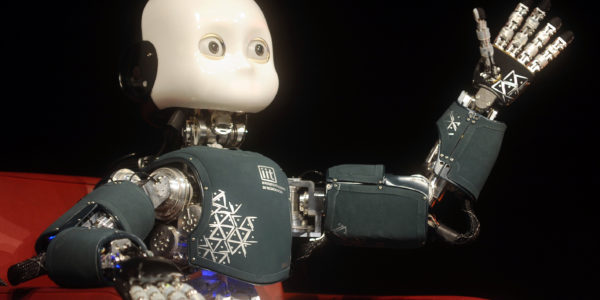Italian researchers conducted a study that involved having human beings watch movies with iCub, a humanoid robot. In some cases, the robot was programmed to make apparent eye contact with the people, to ask their names, and to respond to the videos with laughter or sounds suggesting emotional responses like awe. In other cases, the robot’s cameras were disabled so it couldn’t make eye contact, it did not interact with the human beings, and it made beeping sounds.
The two groups of people were then shown pictures of the robot with alternative descriptions such as these:
- The robot grasped the nearest object.
- The robot was fascinated by tools.
People who chose the descriptions that hinted at robotic desires and preferences were said to show and “intentional stance” — that is, they accepted that the robot had intentions and did things because it wanted to.
The intentional stance
People who had seen the more human-like programmed behavior, with the chatty robot being amused and impressed by videos, were more likely to adopt the intentional stance toward the iCub than those who saw only machine-like behavior.
We’re not amazed by this. Neither were the researchers.
But this connects with ethical concerns that are popping up as social robots and cobots become more common parts of daily life.
“Social bonding with robots might be beneficial in some contexts, like with socially assistive robots. For example, in elderly care, social bonding with robots might induce a higher degree of compliance with respect to following recommendations regarding taking medication,” the main researcher said. Research on this specific issue has found that people are more likely to comply with instructions from robots in health care settings depending on the way they phrase their commands.
Think about the implications, though. If elderly people can be manipulated by an intentionally programmed ElliQ, this brings up some serious ethical quandaries — especially when we consider the opportunities for hackers. Research telling us precisely the programming that makes robots persuasive may lead to unforeseen consequences.
Your Indramat motion control systems don’t have any human-like behaviors, but we still know what they want. They want you to choose us when they need service or support. We are Indramat specialists. With factory repair or reman, you can keep your Indramat legacy components working.



